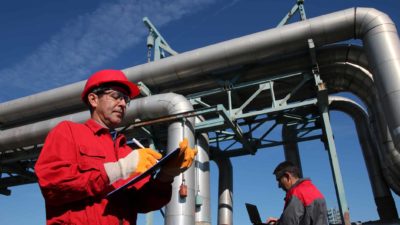ASX 200 uranium stock Boss Energy Ltd (ASX: BOE) is the biggest faller of the ASX 200 so far today.
The Boss Energy share price tumbled 9.73% shortly after the market open amid news of a major collective insiders sell-off. After hitting a low of $4.82 per share, the uranium miner has partially recovered to $4.87.
Just after 5pm yesterday, the company announced that Boss Energy CEO and managing director Duncan Craib, chair Wyatt Buck, and director Bryn Jones had sold a significant portion of their personal holdings.
The statement included details of each sale and commentary from Buck as to why the sell-off occurred.
Let's look at the details.
Major insiders sell-off of ASX 200 uranium stock
Firstly, let's look at the details of the sales.
Boss Energy CEO and managing director Duncan Craib sold 3.75 million shares at an average price of $5.63 per share between Tuesday and Friday last week. The on-market sale totalled just over $21 million.
Additionally, Craib exercised an option yesterday to acquire 250,938 Boss Energy shares at a zero exercise price. The 250,983 short-term unquoted options had an expiry date of 30 June 2025.
His holdings now total 741,673 shares in the ASX 200 uranium stock, plus almost 300,000 long-term unquoted options and more than 390,000 long-term performance rights.
Chair Wyatt Buck sold 291,777 Boss Energy shares last Tuesday, also at $5.63 per share. The on-market sale totalled just over $1.64 million.
The sell-down represented 63% of Buck's holdings. He retains 170,000 shares in the ASX 200 uranium stock.
Director Bryn Jones also sold 600,000 Boss Energy shares last Tuesday at $5.63 per share. The on-market sale totalled just under $3.38 million.
Like Buck's sale, this also represented 63% of his total holdings. Jones retains just under 345,000 shares in the ASX 200 uranium stock.
What did management say?
In the statement, Buck explained that several years ago, the board of directors made personal commitments not to sell any shares until Boss Energy's 100%-owned Honeymoon mine began production.
The company acquired the Honeymoon mine in December 2015. The first drum of uranium was produced last month, making Boss Energy Australia's first new uranium producer in a decade.
Buck specifically addressed the largest sale among the three directors — that of CEO Duncan Craib.
He said:
Mr Craib joined Boss in January 2017 and was tasked, personally invested, and incentivised with taking the Honeymoon mine toward production.
Having achieved that milestone event Mr Craib has sold 3.75 million securities and retains 1.43 million securities after the change.
Mr Craib remains a significant long-term shareholder of the Company and has no intention to sell any further shares in the medium term.
Buck added that Craib remains committed to driving Boss Energy's growth.
He said the board was acting to ensure Craib and the executive team were incentivised and aligned for the company's next stage of expansion.
As of 31 March, Boss Energy had no debt and $298 million of liquid assets (cash, equity investments, and physical uranium).
What's happening with the Boss Energy share price?
The ASX 200 uranium stock has soared in recent years as the world warms up to the idea of nuclear energy being part of the green energy transition.
The Boss Energy share price is up 75% over the past 12 months and 9,560% over the past five years. (You read that right!)
As we recently reported, the ASX 200 uranium stock has also been one of the top 5 risers since the COVID crash.
The new demand for uranium emerged amid constrained supply, leading to extraordinary growth in the uranium price.
The uranium price is currently at a 16-year high of US$91.65 per pound, up 68% over the past 12 months.
The uranium price cracked the US$100 per pound watermark in January before retracing to where it is today.
Established uranium mining companies around the globe have rushed to restart mines that have been on care and maintenance for years to feed this growing worldwide demand.
According to Trading Economics, the United States and 20 other countries have announced plans to triple their nuclear power by 2050.
Of the 58 global nuclear reactors under construction, China is building 22 of them.









